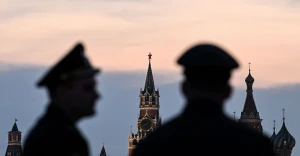
Turkey aims to revive grain deal on “expanded scope” – Erdogan
Turkish President Recep Tayyip Erdogan announced his intention to restore the grain deal with an "expanded scope" and called on Western countries to "fulfill their promises"
Bloomberg writes about it.
"We had another chance to learn first hand Russia’s demands and expectations during a phone call with Russian President Vladimir Putin," Erdogan said.
He added that the two leaders shared a "sensitivity" about the need to get grain to Africa.
According to Erdogan, contacts to restart the initiative "with an expanded scope" are continuing, but the decision depends on western countries “fulfilling their promises.” He did not specify exactly which commitments had been broken.
"Unfortunately in the previous period the principle of loyalty wasn’t observed. No diplomatic steps were taken to turn the positive atmosphere created by the Black Sea initiative into a cease-fire and then permanent peace," the Turkish leader emphasized.
Russia's termination of the grain deal
On July 16, the last ship loaded with Ukrainian agricultural products under the initiative left the port of Odesa. On 17 July, Russia announced the termination of the grain deal. In response, Volodymyr Zelenskyy said that it was necessary to continue using the grain corridor even despite Russia's withdrawal from the agreement. And Kuleba began urgent consultations at the UN.
The White House condemned Russia's withdrawal from the grain deal, which played a crucial role in reducing global food prices.
On 18 July, Russian presidential spokesman Dmitry Peskov said there were "certain risks" for parties trying to resume the Black Sea Grain Initiative without Russia's participation.
European Commission President Ursula von der Leyen said that it was critical to restore transport links across the Black Sea to provide food to the world's most vulnerable countries and to preserve the ability to export Ukrainian goods.
On 19 July, it was reported that Ukraine was considering transporting food as part of the grain initiative through the territorial waters of Bulgaria and neighbouring Romania.
At the same time, the Russian Ministry of Defence issued a statement threatening ships heading to Ukraine's Black Sea ports. On the same day, Putin named the conditions for Russia's return to the grain deal and demanded their immediate implementation
On July 21, Recep Tayyip Erdogan said he wanted to discuss the extension of the grain deal with his Russian counterpart Vladimir Putin and expressed confidence that it will work again.
On July 22, President of Ukraine Volodymyr Zelenskyy addressed NATO Secretary General Jens Stoltenberg with a proposal to immediately convene the NATO-Ukraine Council due to the security crisis in the Black Sea.
Volodymyr Zelenskyy wrote about his conversation with Stoltenberg on Telegram. It is noted that Zelenskyy and Stoltenberg discussed the implementation of the agreements reached during the Vilnius Summit of the Alliance, as well as further steps towards Ukraine's integration into NATO.
On July 25, the GUR released a report to the Russian leadership, which outlined the technologies used to prevent grain exports from Ukraine, indicating that the "grain deal" was deliberately disrupted.
On the same day, the US State Department, amid the shelling of Odesa and the Danube infrastructure, said that Russia was preparing a false flag operation in the Black Sea on a ship in international waters.
On July 25, Russia laid additional sea mines on the approaches to Ukrainian ports in order to blow up civilian vessels and later blame Ukraine.
On July 26, the UK Ministry of Defense reports that Russia has deployed a modern corvette, the Sergei Kotov, in the southern Black Sea to intercept merchant ships at sea. It patrols the transportation route between the Bosporus and Odesa.
Later, it became known that Russia was preparing aircraft and ships to block the Black Sea, detect and destroy ships.
Russian President Vladimir Putin announces that after unilaterally withdrawing from the Black Sea Grain Initiative, Russia is ready to replace Ukrainian grain and start supplying its own grain to African countries free of charge.
On July 30, during the Sunday Angelus prayer in the Vatican, Pope Francis called on the Russian side to renew the Black Sea Grain Agreement, which allowed Ukraine to safely transport grain. Later, President Volodymyr Zelenskyy said that he considered the Pope's call to Russia important.
On Sunday, July 30, despite the completion of the grain deal, three civilian cargo ships of foreign origin passed the Russian blockade in the Black Sea and anchored in one of Ukraine's grain ports in the Danube Delta.
On August 2, the United States said it had information that Russia was interested in resuming negotiations on the agreement, which ensured safe Black Sea grain exports.
- News














































